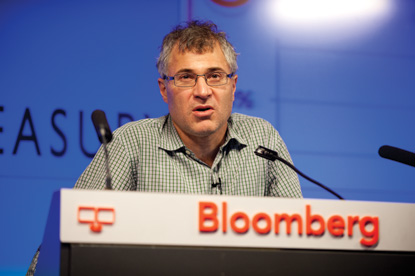By Nick Mann | 22 March 2013
Competing calls to increase growth and reduce spending and taxes resulted in a Budget that was ‘muddling through at best’, Jonathan Portes told CIPFA's World-Class Performance Symposium.

Speaking at CIPFA’s World-Class Performance Symposium, the director of the National Institute for Economic and Social Research claimed there was a ‘growing consensus’ that the UK needed a growth-led investment strategy.
Chancellor George Osborne’s Budget speech outlined plans to move £3bn of current spending into capital spending, but this would have ‘very little’ macro-economic significance, Portes explained.
He said: ‘The UK needs an investment-led growth strategy. Investment in the short term and in the wider sense – not just a third runway, but also skills, human capital, investment in innovation and a more open remuneration policy to boost growth in the medium to long term.’
Portes added: ‘There is common ground from economists over what a proper growth strategy over the medium term might look like but we didn’t see much of that in... [the] Budget.’
It was ‘quite apparent’ that Osborne was caught between this view and the view held by a ‘considerable part’ of the Conservative Party and backed up by other economists that he should cut spending, especially current spending, more as well as cutting taxes.
‘I don’t agree with that position myself, but it is an intellectually respectable one,’ Portes said. ‘The chancellor has been caught between the two and for whatever reason he has gone for the approach of muddling through, which is the wrong one.’
Julian Kelly, the Treasury’s director for public spending, stressed that the extra £11.5bn in savings announced for the next spending round included an element of investing in growth.
‘The chancellor said we’ll take another £11.5bn savings out of current spending and where we can we will continue to use some of that to boost and maintain plans for capital investment. That has been a theme of recent chancellor statements,’ he noted. ‘Our ministers are thinking within current spending how do we support and prioritise things that promote growth, how do we drive more efficiency out of the public sector through public service reform and localism but with a continued focus on fairness?’
Public sector pay restraint would also be a ‘continuing theme’ of the next spending round, Kelly added. ‘It’s interesting at a time when we’ve had pay freezes for the public sector, public sector earnings have still grown by just shy of 2%. This is because we still have large segments of the public sector workforce who have automatic annual progression and increasingly we’re looking at ways of bringing public sector pay practices closer to those of the private sector.’




















